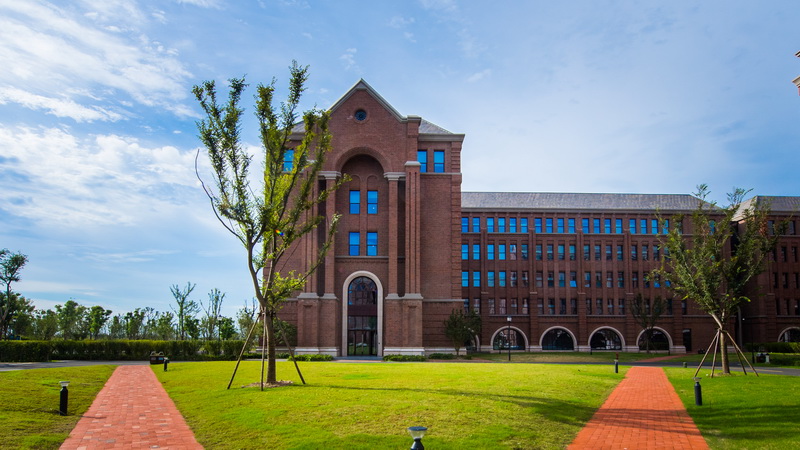This is an era of digital technologies and poems.
With the rhythm of poetry on the left page
and the cadence of algorithms on the right screen.
Scholar Introduction
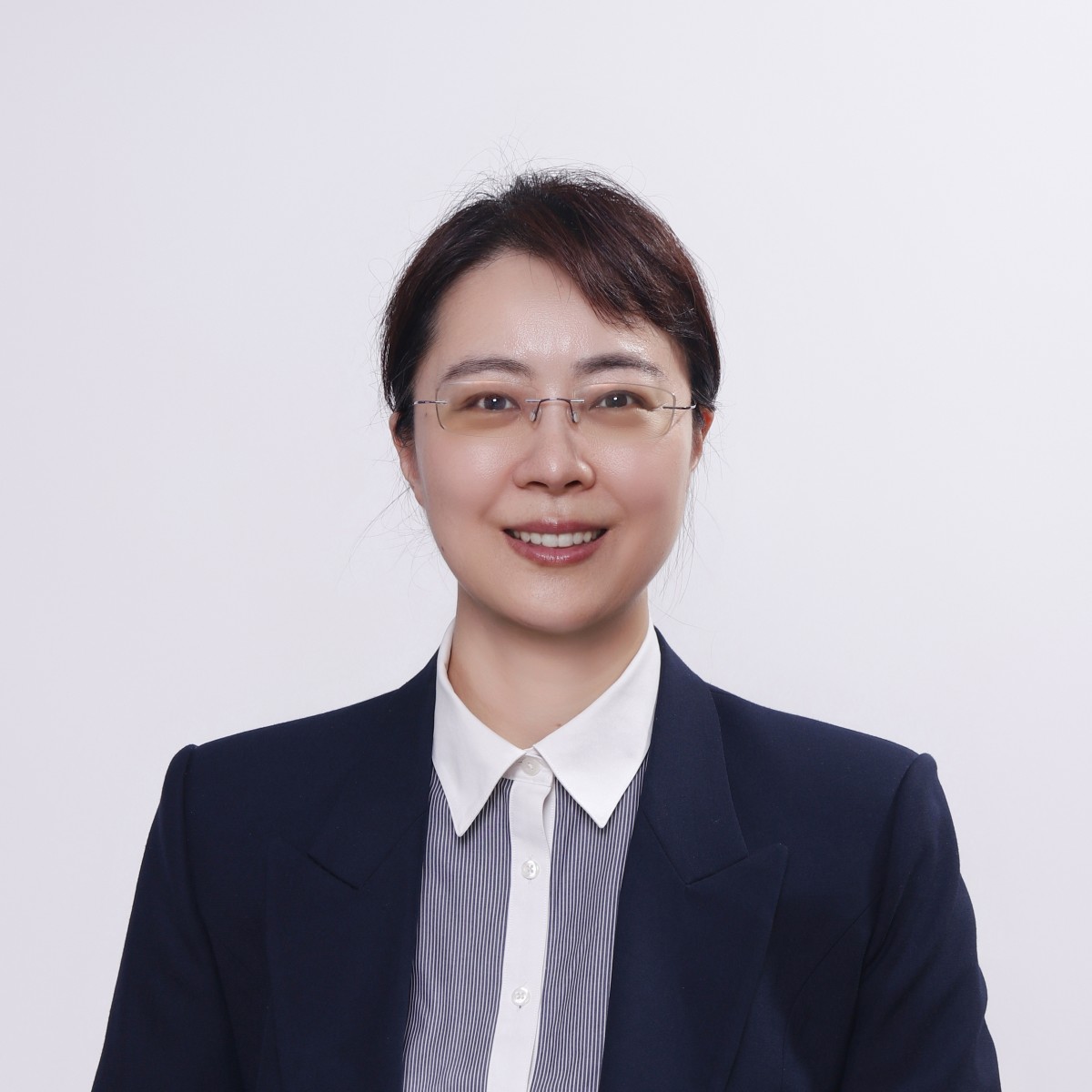
Chi Ying, Associate Professor at Zhejiang University-University of Edinburgh Institute, PhD from Imperial College London, and Postdoc from Oxford University. Formerly the AI Director for Siemens Healthineers China, founding Director of Smart Healthcare at Alibaba DAMO Academy, and co-founder, CTO, and CEO of the exclusive AI drug development platform at Zhongguancun Life Science Park. Her main research areas include AI simulation of molecular dynamics, deep GPT for biomedicine, de novo protein design, and medical AI.
she softly murmurs—
Be a brave pioneer, but also a poem,
graceful as the cloud.
In this episode of code meets poetry,
let us step into Professor Chi Ying's study room,
where technologies and humanities intersect,
and where rationality and sensibility collide.
About My Study Room
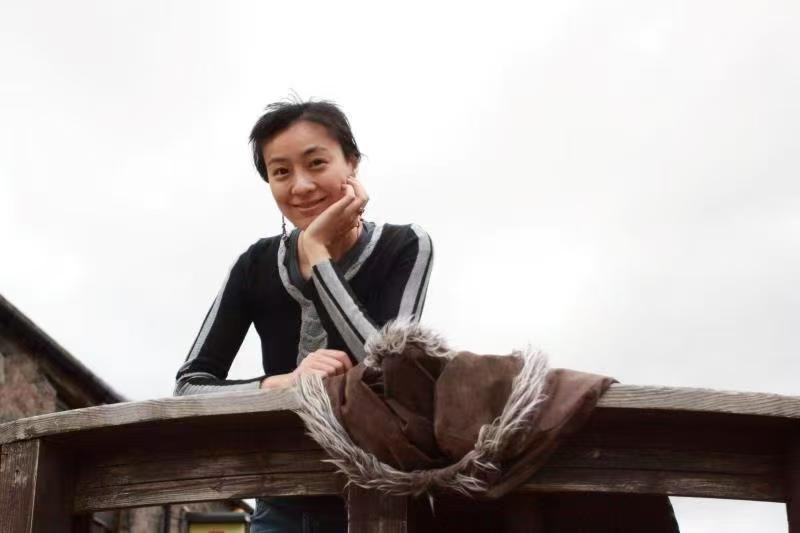
Q:Does your study room have a special name?
A:My study room is named "Xiyunjian," a place to savor the goodness and vicissitudes of life, filled with joy, a sense of achievement, and relaxation without pressure. The "e-bookshelf" is named "Zhiyunge," and my favorite books include AI-enabled biomedicine literature, collections of Tang and Song poetry, and biographies of optimistic, humorous, and positive figures. (Most of my books are digital now, so my physical bookshelf is not very full, with most paper books being academic conference publications.)
Q:Is your study room a collection of your reading history?
A:I am fortunate that my hobby is my profession. I have always loved my work and plan to work until I am at least 90. Therefore, as mentioned, my favorite books are those related to AI-enabled biomedicine.
Poetry is my stress-relief tool, helping me understand life more thoroughly. It allows me to find joy in hardship and makes mundane life extraordinarily free and pleasant. It also drives me to pursue my work as an art.
When writing code, from the scientific significance and value of the project to the arrangement of graduate students and the refinement and efficiency of code details, I unconsciously aim to match the status of Tang and Song poetry in the poetry world, striving to make it a masterpiece.
Additionally, I enjoy reading biographies of optimistic, humorous, and positive characters, which help me understand history, the good and evil of human nature, and the grandeur of life. I also need to understand the world and society closely related to our lives, so I keep up with news and current events every few days.
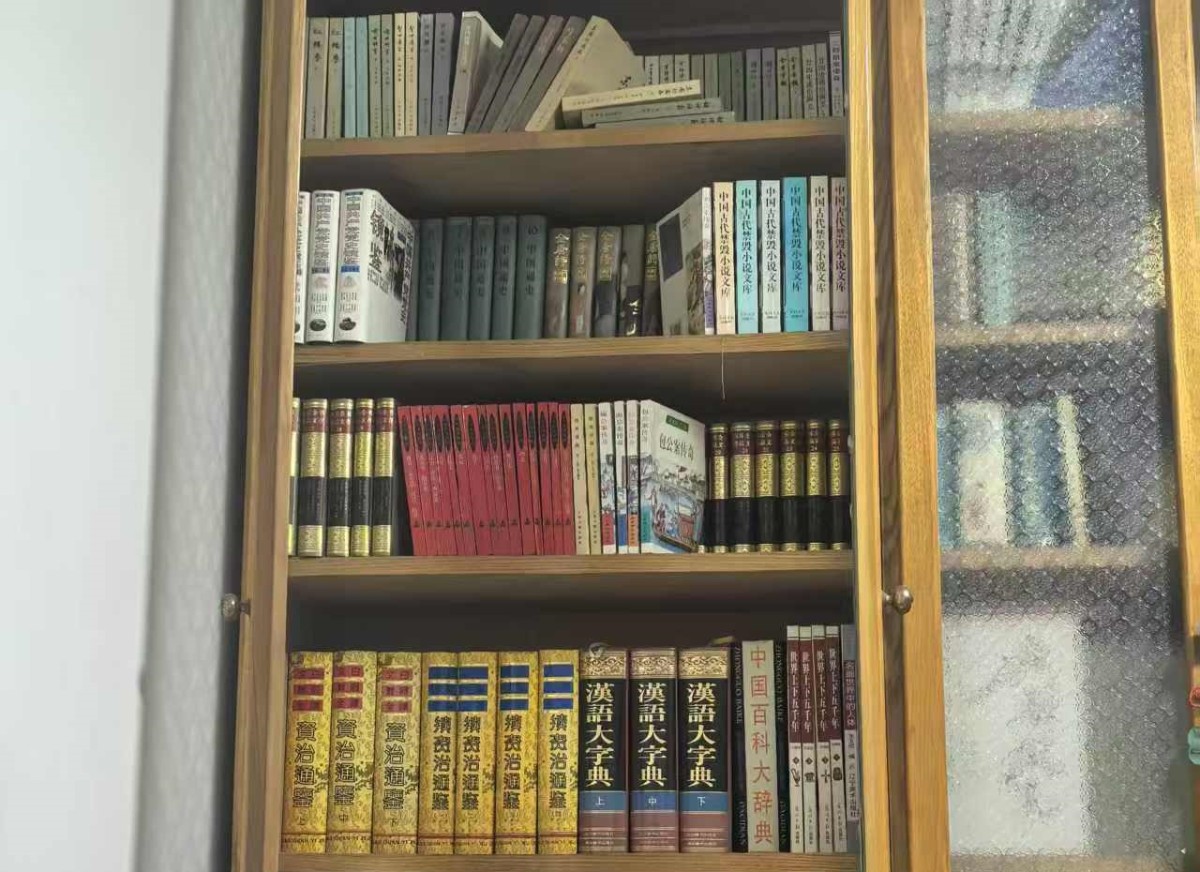
Q:Were you ever inspired by a poem in your scientific work?
Xiyunjian · Zhiyunge
The Lanxi stream winds around rocks,
moistening clouds above,
bamboo curtains half-rolled,
filled with the fragrance of books.
Tea smoke curls gently, lingering over worn scrolls,
Moonlight through bright windows casts a radiant verse.
Bronze slips trace the beauty of mountains and rivers,
iron wings brush away dust,
painting tales of time’s passage.
Stone inkstone, richly ground,
holds white porcelain’s grace,
colored ink flows from the heart,
inscribing boundless dreams.
Morning and evening forge a three-foot sword,
white steed gallops freely,
roaming all directions.
Smiling, I ponder deeply, as spring grass comes to life,
poetry drifts freely, defying autumn’s frost.
Rain washes the empty valley,
nurturing an open heart,
wind carves the gray rock,
tempering resolute will.
The Pavilion of Wisdom cannot confine a thousand years of charm,
stream and cloud cross the world, steadfast and strong!
About My Reading
Q:When did you start reading?
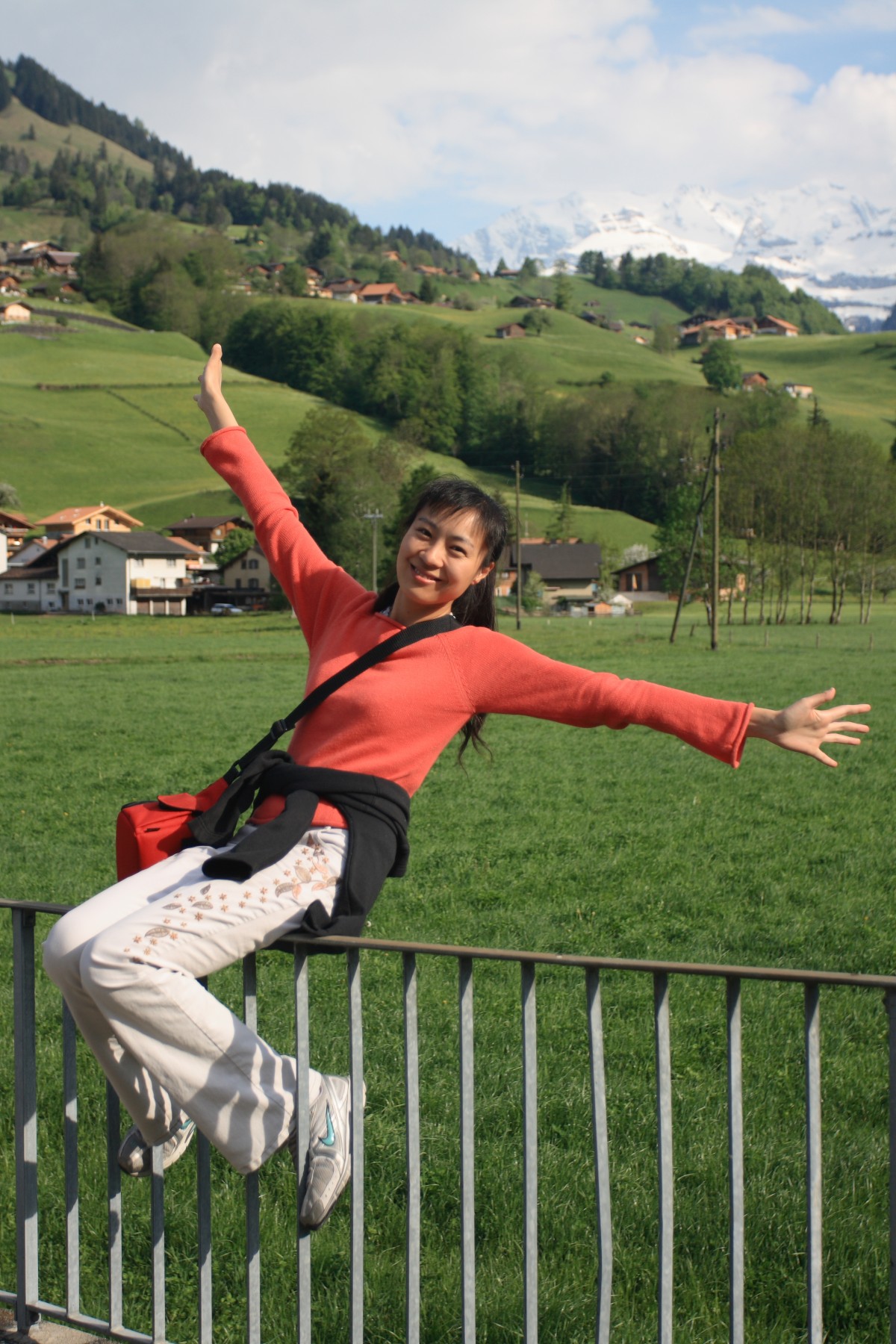
A:His extensive reading greatly benefits his work. In daily conversations with family and friends, my father often quotes classics with wit. At my parents' home, I browsed their books, listened to historical tales, and joined them in composing poetry and solving riddles. Their influence nurtured my perspectives through reading and reflection, shaping my worldview—later fueling my perseverance in academia and research.
From middle school, my Chinese teacher always told me that my reading notes had the charm of poetry. My daily mood was like the clouds embracing the blue sky, changing shapes interestingly, full of infinite expectations and imaginations for the upcoming opportunities and beauty in studies, technology, and life. Later life experiences proved that such an optimistic and positive mindset was unbreakable even in adversity.
I started writing poetry vaguely in middle school. Once, I wrote a poem, 'Rumengling,' for a kindergarten teacher, praising her as a good teacher. I didn't expect that I would become an honored teacher today. The content was a bit immature, as follows:
Rumengling·The Talented Girl
Virtue lights the world, loyalty guides our home.
Knowledge knows no bounds,
as tides refine the sands.
Free and fine, free and fine,
lost in arts so divine.
Kind words, deep as rivers flow,
truth breaks rules to shine and grow.
But a few words spoken yet untie ten thousand knots.
Jade within, jade within—your anthem lifts the world to begin.
Q:Could you share your reading habits with us?
A:As mentioned, I follow news and current events every few days to stay sensitive to societal changes. Other times, I read, research, discuss, arrange, or write research proposals, applications, code, papers, or books, constantly drawing strength and insights, balancing research and management.
When very tired, I switch tasks, like alternating between research and management, or writing a poem or doing household chores. Practice shows that switching tasks can be more therapeutic than a long sleep. I also have three meals a day with family, colleagues, or friends, chatting about daily life, which prevents loneliness. Of course, a good night's sleep is still essential for maintaining focus and reading efficiently.
Bright Future
Q:It's graduation season—as students prepare to leave the campus, could you share some advice for their next chapter?
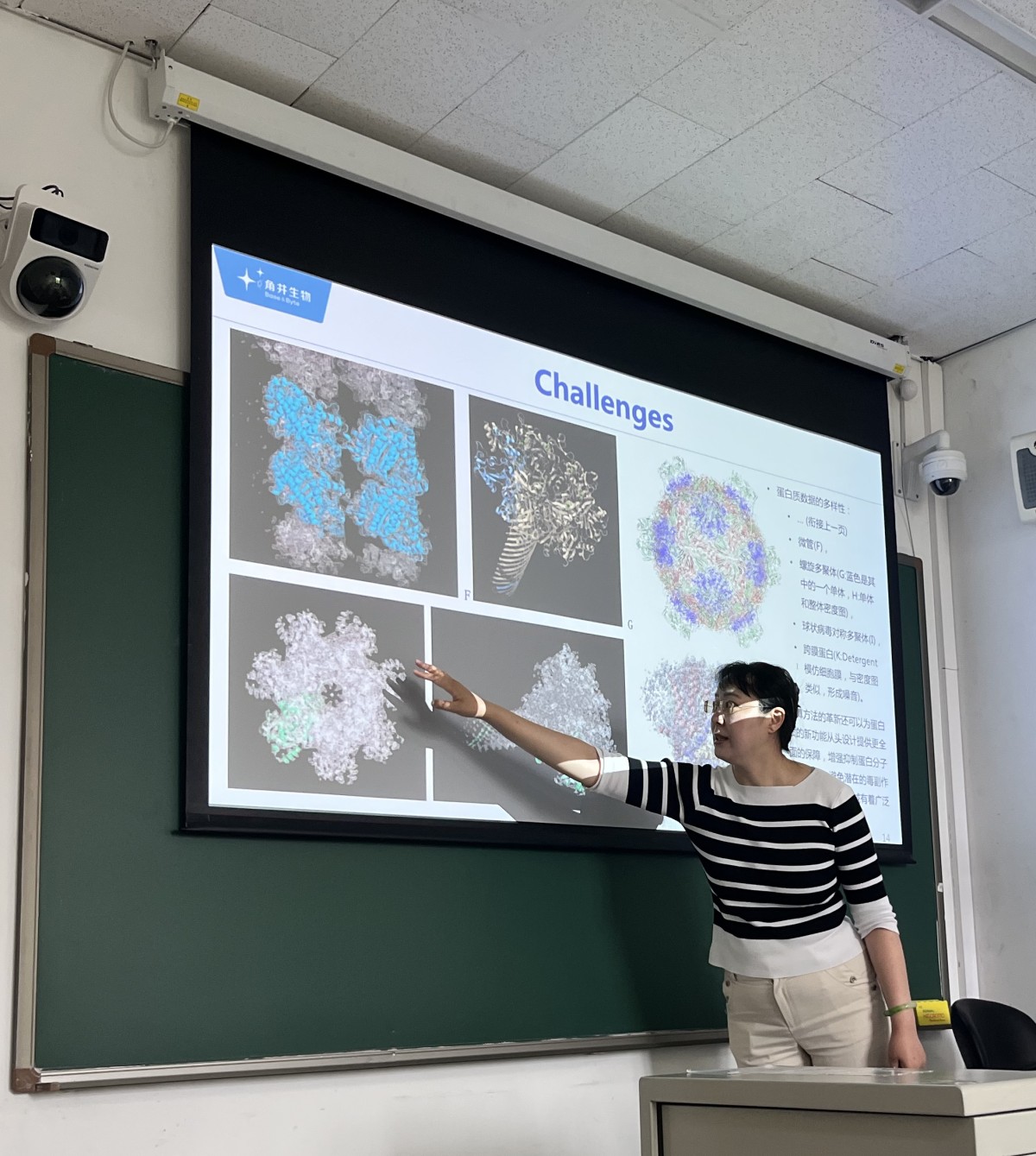
A:"What I want to tell the graduate students is: strive to adapt to this transitional period of the technological era and aim to become strong contenders for the new positions created by AI revolution!"
The current era is different. Our generation benefited from the reform and opening-up policy of the country, but today's graduates face a very challenging job market. But of course, graduates from our campus generally fare much better than the average, with about 90% continuing their studies at top universities at home and abroad. However, for the majority of graduates from other schools, the contraction of job opportunities and intense competition, generally makes it difficult for them to find their dream job after graduation.
Graduates, as you mentioned, may feel anxious and confused. The government has timely introduced policies for universities to expand enrollment, providing more opportunities for students to continue their studies domestically, but this cannot immediately solve the employment problem for all graduates.
People say that AI has significantly replaced many workers and will make many positions obsolete in the future. This issue does exist, but we must also recognize that AI is creating many new job opportunities. For example, the rapid development of AI GPT large models has left many illusionary pitfalls in the intelligent field. These pitfalls, due to insufficient training data, cause GPT to lack correct experience and thus only provide misleading information.
In the field, there are a vast number of such problems, requiring many AI practitioners with solid foundation to address them. Similarly, the embodied intelligence (intelligent robotics) industry also needs many not necessarily experienced experts to explore, promote, and advance. Additionally, AI ethics legislation is crucial. People worry that AI with autonomous intelligence might be detrimental to humans, but without rapidly developing AI, we would be even less able to protect ourselves and would be at a greater disadvantage in the face of autonomous intelligent AI. Moreover, we would be bullied and ostracized by other humans who possess advanced AI technology. AI ethics legislation also requires many junior experts concerned with human safety to contribute ideas. Although many of these positions have not yet been created and we have started recruiting, it is only a matter of time before they appear.
If graduates cannot find a job now, instead of being anxious, they should quickly equip themselves for these new positions. Opportunities always favor those who are prepared. So, as a researcher who has been working in the AI field for over twenty years, my advice to graduates is: since the vigorous development of AI is inevitable and necessary, strive to adapt to this transitional period of the technological era and aim to become strong contenders for the new positions created by AI revolution!
Of course, the new positions created by the technological revolution are not limited to AI. There are many others, such as quantum computing, 6G communication, etc. Everyone needs to tailor their preparation to the new job demands closest to their interests and original majors. Do not ‘lie flat’! Do not think that the requirement for "accumulating as much as possible but releasing a little at a time" is too high of a standard or that these new job directions are out of your reach. These directions have just emerged, and everyone is starting from the same point. If you stand up and run, you have a chance. Believe that the future is always within your hand, youngsters! You are the protagonists of the country and the hope of humanity!
Recommended Reading:
1. Alphafold 2, 2020~21
2. RoseTTAFold, 2021
3. ESM fold, 2022
4. SCUBA, Feb. 2022
5. Protein Generator, Jul. 2023
( Diffusion Model + ProteinMPNN, May. 2023)
6. Geneformer, Jun. 2023,
7. Single-cell spatial transcriptomics,
three high-impact papers in the past year
8.BioMedGPT, 21th Aug. 2023
9. GPTs :
(1) Mouse and human model comparative
analysis,23rd Oct. 2023
(2) Drug design GPT, 19th Oct. 2023
(3) RNA design analysis GPT, 12 Dec. 2023
(4) Sora, Gemini, GPT-4 Turbo, GPT-1O,Dec. 2023
(5) ScGPT Feb. 2024
10. Alphafold 3, 8th May 2024
11. Mamba, 31st May 2024
12. Test-time Training (TTT), 5th Jul. 2024
13. ESM3,Dec. 2024
14. DeepSeek, GPT-o1 API, Dec. 2024
15. LigandMPNN, March 2025
16. GPT-4.1 14th May 2025
"Currently, my favorite reads are professional technical papers. For those interested in understanding the trends and developments of AI empowering biomedicine."
Reflecting on Professor Chi’s life, the most touching aspect is her ability to maintain a poetic and gentle disposition amidst the high intensity of work. It seems that in the gaps of time, she can always gracefully pick up scattered poetic moments, interacting with the world in a calm and gentle manner.
When asked how she maintains this essence, she replied, "I didn't do it deliberately. It’s just what I am."
Let’s express our deep respects to Professor CHI Ying for accepting the interview.
Planner: XU Shunan
Article and Photography: CHI Ying
Traslation: Wu Bo Han
Editing: LI Songjiao
Editing in charge: LI Yinan, LIN Suting
Reviewer: YANG Yi
Final Review: QU Haidong


